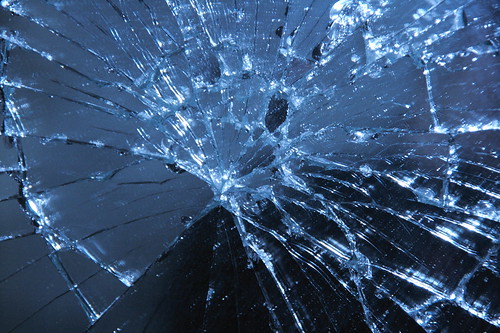Do you have a lucky charm? Do you avoid calla lilies? Do you believe that to spill salt brings bad luck?
If you do, this article is for you. Here’s a round up of superstitions from different countries sent in by our contributors around the world:
Australia
Rebecca Kinsella wrote:
Australian Indigenous people believe in The Dreaming, a time when the Ancestral Beings moved across the earth, creating the animals, plants, rock formations and features of the landscape. Indigenous stories of creation are founded in Dreamtime myths and the supernatural. They form an integral part of Aboriginal spirituality, and in some areas there are separate beliefs for men and women.
Many Indigenous Australians are very superstitious people, and their connection with the land leads them to believe certain animal spirits can harm people. One belief is that killing a willy-wagtail bird makes the bird’s spirit angry; creating storms of violence that can kill people.
The Netherlands
Arwa Lokhandwala wrote:
Here are some of the most common superstitions in The Netherlands –
A broken dish supposedly brings good luck, and a pine tree is generally planted for the newly weds. Pine symbolises good luck and fertility.
“Do not walk under the ladder”, I have heard my neighbour say to her kids several times. It is considered to bring bad luck and should be avoided by walking around the ladder.
 Cats seem to play an important role in Dutch superstitions. A black cat crossing your car is supposed to bring on something bad during your journey – if you have seen one, being more cautious on road is the only solution.
Cats seem to play an important role in Dutch superstitions. A black cat crossing your car is supposed to bring on something bad during your journey – if you have seen one, being more cautious on road is the only solution.
Also, cats were not allowed to be in the room when discussing private matters, in the earlier days. It was believed that the cats have a tendency to spread gossips.
Lastly, as in many other cultures, the evil eye is dreaded by the Dutch. Black paint is used to ward off the evil influence.
Japan
Mike Lynch wrote:
Racking my brain to think of a superstition we have here in Okinawa. I remember my Professor, back in college, raising Cain if we ever called anything in Okinawa a superstition. She didn’t like that word, it was a cultural belief, not a superstition. Well, she’s long gone, now and she probably never heard of this one anyway!
Years ago, I started my first job as a bartender in an Okinawan bar. Being a little bigger than your average Japanese and lots more clumsy, I was kinda bumping into things, all the time, behind the counter.
Well, one time I bumped into a bottle of Scotch and knocked it off the shelf. Crash! Broken glass and Scotch all over the floor behind the bar.
All embarrassed, thinking I was going to be fired, or at least have to shell out big bucks to pay for a full bottle of Scotch, the owner and everybody at the bar cheered; they were happy.
When it quieted down, I asked why everyone was so happy when I broke a full bottle of Scotch. They told me “That’s good luck. It means the whiskey is going to flow tonight and the bar will make more money”. So I said “Would you like me to knock a few more bottles off the shelf?” They said “No. It has to be an accident in order for it to be good luck!”
U.S.A.
Sean Oliver wrote:
• Break a mirror, 7 years bad luck
• Never walk under a ladder
• If you spill salt, you have to toss some over your left shoulder
• Never leave a hat on a bed
• Never let a black cat cross your path
• You never say “good luck” to an actor or actress before a performance; you say “break a leg”
Romania
Carmen Cristal wrote:
I get up in the morning with a strange feeling. A bad dream has tormented me all night long; and they say that if you dream a dark water or that you carry in your arms a newborn baby, something bad is going to happen to you.
Get off the bed, try to check my appearance in the mirror, but I discover it jut cracked. Now, 7 years of bad luck will follow.
As if this is not enough, when I finally go out in the street, a black cat crosses my way, increasing my bad luck chance of the day.
From the bus window I see a priest and now I know for sure: today is not going to be one of my best days.
And suddenly come to my mind all sorts of other “recommendations” one should obey in order to have good luck in personal life:
• Don’t cross under a ladder – you will have bad luck
• Don’t give money on Mondays – you will give money all week long
• Don’t sit at the corner of a table if you are not married yet; if you do, there are chance you will never marry
• Take care on a Tuesday especially if it is also a 13th – you might have bad luck
• On your wedding day pray that it will rain – then your life will be full
• When you meet a chimney sweep, make a wish and it will be accomplished
• On the day of St Andrew (30th of November) put wheat grains in a pot and take care of them; as tall as wheatears grow, so will be the year to come for your family (I don’t want to believe in superstitions, but I can relate you that in 1988, my mother and her office colleagues put the same kind of wheat grains in the pots and my mother‘s were the only ones which didn‘t grow at all; in December, the same year, my father died)
• On New Year’s Eve dress something new, and especially red and have money in your pockets so next year will be a lucky one
• If a man is the first person to enter your home in the first day of the year, this will bring you good luck
And the most widely spread Romanian superstitions, according to a study made by Sociology Faculty of Bucharest University:
• If your left palm itches, you will receive money; if your right palm itches, you will give money
• You must wear something red in order not to be touched by an evil eye
Of course, the list is much, much longer. But in the meantime we must also live.
Update: By strange coincidence, Gloria of At home in Tuscany just published a summary of Italian superstitions. So why not head over there to complete the tour?
How relevant are superstitions in your culture? Do you pay attention to any particular superstition?
Read more:
Kiss, hug or shake hands? Greetings around the world
Spiritual practitioners praying for peace in Kyrgyzstan
Dutch character traits: an expat returns home








No money giving on Monday – this one seems important 🙂 I love this compilation and will be sharing it with my friends..
All the USA superstitions are found in the UK too, apart from the hat on the bed. But it could be I just never heard that one. One more – I often heard people say that you shouldn’t light a cigarette using a candle. If you do, a sailor will die.
Argentina and Romania of all countries have superstitions in common.
People believe that Tuesday 13 is unlucky too!
And wearing a red ribbon also protects you against the evil eye.
Rain on your wedding day.
And the itchy palm too.
Who would have thought? In Turkey there is a blue glass eye to protect against the evil eye. Lots of houses have one at the door.
You see? It’s destiny! Today we are kissed by good luck!!!
Thanks for the link!
Gloria
…. they say superstitions are rooted in reality…. or was that legends and folklore !! 🙂
and never put shoes on a table..but i forget why??
There are plenty of superstitions in Japan:
– you should never wear socks when going to bed/ sleeping (that’s reserved for dead people)
– evil stuff (bad luck) normally arrives from the northeastern direction
– just like in China, numbers 4 (death) and 9 (pain, suffering) are not liked.
There are many more, and sometimes they differ by region.
Nice blog, BTW. 🙂
Turkey is full of superstitions…
here is one:
-do not leave your slippers contrary(upside down)..it is bad luck for whole day..
so be careful!
@Arwa – although I know this very well, on the most of Mondays I find myself giving money ! So, the rest of the week is ruined !
@Ana – maybe because of the common Latin roots
Great compilation of superstitions. This is more of a cutural oddity than a superstition, but in Nairobi, during the US presidential elections that Obama eventually won, no one wanted to watch the results on their home TV sets, they tried to watch in public places so that “the election could not be rigged.” (The idea being that one person could manipulate your TV set for you, but it would be impossible to do that for thousands of people watching.)
Jason
Thanks Jason! Interesting story. I guess that qualifies as a kind of superstition.
[edited]
@Keith: Thanks for stopping by. We welcome all points of view here on PocketCultures, but we don’t publish comments that don’t show respect for people who think differently. Please see our comment policy for more details: http://pocketcultures.com/terms-of-use/
My ex-wife’s parents were of Lithuanian decent and I always heard them say that the first time that you look upon a baby that money must be put into their blanket or bad luck will follow the child forever.
Wow1 lots of interesting comments here. I’m loving this cultural interchange.
in iraq we have the same superstitions we put blue seven eyes at the door to protect us from envy and if there is a crow above the house that means something bad is going to happen and the list is long
Honey, it’s interesting how the evil eye superstition can be found around the world. In Argentina, some people believe that the colour red protects them from the evil eye.
hi ana you are from Argentena ,arent you . let me tell you about other supretitions here in iraq if someone itches his cheeks that means someone is going to kiss him , we are afraid of the lunar eclipse means the whole year goes bad
that reminds me of an English superstition.. if your ears feel hot it means someone is talking about you
Hi I hear of , Don’t get your shoes over upper you level, but don’t know why….?? or don’t store up the floor….
superstitions are everywhere!!!! but many countries share the same once!!!
In some tribes in Kenya if you brought home with you a new fowl/hen/rooster that you were afraid would get lost as you let it out, you only had to put a broom and wooden cooking stick in the doorway and let it cross over them on its way out, it would naturally find its way back to the new home.
If you helped a friend wash his hands by pouring it over his hands, you will end up quarelling.
And the last one if you pile up crockery on top of each other, you will always be blamed for things you didnt do.
That sounds unfair! 🙂 Thanks for sharing these superstitions.
amazing! superstitions across the globe are interconnected,all our ancestors originated from the same place.
some superstitions from India:
footwear musn’t lie upside down
if one foot of a shoe or slipper is over the other you will be in a fight or argument!
hang lemons and green chillies strung on a string over your front enterance to ward off the evil eye
don’t walk under a ladder
if your left palm itches you get money if the right palm itches you loose money
if the left eye flutters it’s bad luck right is goodluck
pregnant women must stay indoors during lunar and solar eclipses to prevent deformities in babies
spilling milk is bad luck spilling oil is auspicious
breaking mirror- bad luck
cat crossing your path-bad luck
dogs howling- a death somewhere
ears burning-someone is talking ill of you
bit your tongue?-someones talking ill of you
seeing a priest on the street first thing in the morning-not a good omen
if a piece of dough falls off while kneading it to make bread-expect a visitor/guest
a crow crowing on your property-expect a guest
if your footwear is lying in a stiding position-you’ll be going somewhere
the list just goes on, we have so many of them!
Thanks for sharing those superstitions! This is very interesting.
thnk u very much….
this info. helped me a lot…
n let me tell few superstitions abut my india….
if u r having hiccups then some1 is thinking abut u…
4 ur wedding always use ur right leg, first in walking or climbing stairs 4 gud luck….and it goes on and on….
mostly others r covered by NIRMAL:
hey guys.i m from india. i dont belief in supersticious beliefs . i mean how can a cat cause an accident . its only our mind that gets hipper
But here in India there are other superstitions as well… Like not buying needle at night, not cutting nails and hair just before some good work, not using black color for any work during weddings or festivals as black symbolizes darkness, not giving money with left hand, seeing a single mynah bird is a bad luck and so on… few given here are also followed in India like the black cat crossing and the broken mirror one…
all of them are interesting….but following them is a little hard . being from India we do follow them …….. some of them are …..
if keys fall from your hand some one is going to visit your house.
never keep your text books open ….. evil powers resist u from studying …….thats all I remember.
m frm india . actually al d superstitions have scientific reason behind it ,most of it. n few r to control d society n hold us together . without superstitions a place like india wud b withered , bt few sum hinders d development of india.
The western countries blame India for superstitions but they should look in to their own windows.Every part of the world has its own beliefs.